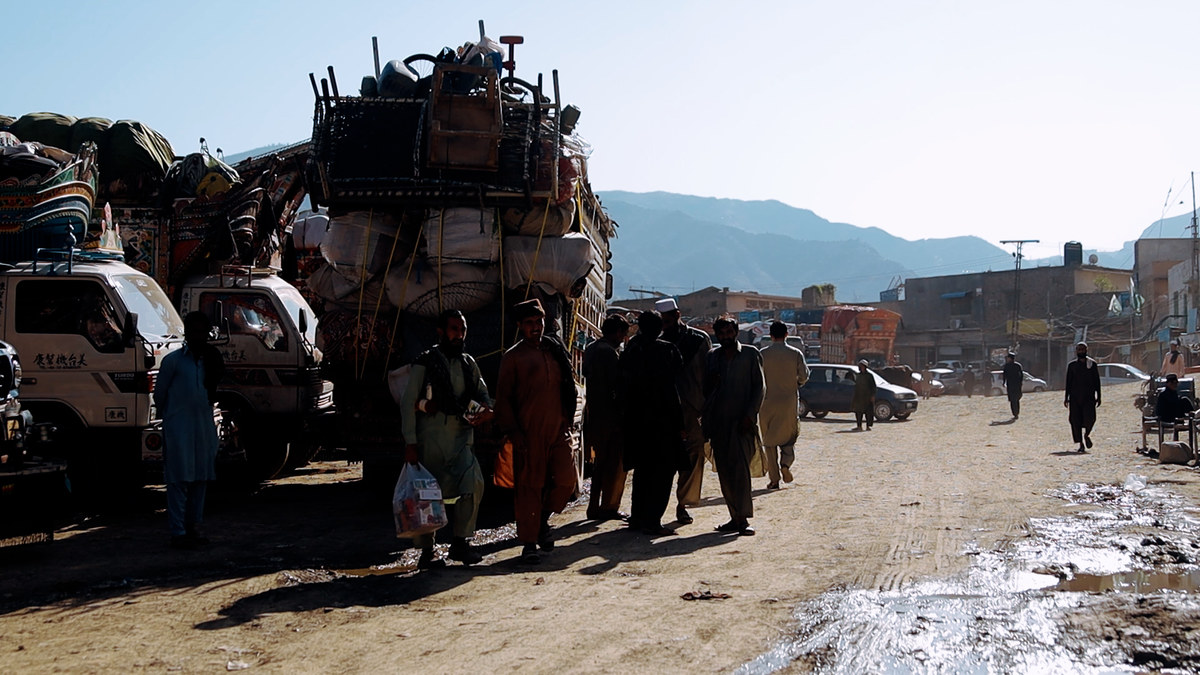As his family went to get their documents scanned at a center near Pakistan’s main border crossing with Afghanistan, Rehmatullah sat with their luggage inside a truck. Sipping tea and preoccupied with thoughts, he was one among many in Torkham waiting to cross the border into a land they had never called home: Afghanistan.
Hundreds of trucks carrying pieces of luggage of Afghan men, women and children were parked a few kilometers from the Torkham border in northwestern Pakistan’s Khyber district.
The border has been a busy one over the past few days, with many Afghan nationals using it to cross into Afghanistan since Pakistani authorities issued an ultimatum to illegal immigrants earlier this month: leave by Nov. 1 or face deportation.
That creates problems for many Afghans in Pakistan like Rehmatullah, 27, who have never been to Afghanistan. Born in Rawalpindi, he referred to Pakistan as his homeland.
“This is the first time in my life I’m going to Afghanistan, and that too because we are forced to,” he told Arab News. “Now, leaving here feels like I’m leaving my own village, my own country.”
Pakistan remains one of the world’s largest refugee host countries and has experienced multiple influxes of Afghan refugees. These span the period from the Soviet invasion of Afghanistan in 1979 to the Taliban takeover in 2021, after which some 600,000 Afghan refugees fled to Pakistan, according to the UN Refugee Agency. Before the Taliban takeover of Kabul, Pakistan was already hosting over 1.5 million Afghan refugees.
Rehmatullah’s family arrived in Pakistan around 48-49 years ago. A mechanic by profession, the Afghan national said his struggles in Pakistan have “gone to waste.”
“I have to go to Afghanistan and start a new life,” he lamented. “I have never been there before and I have no knowledge of the place.”
A recent surge in militancy and economic turmoil in Pakistan has made Islamabad wary of the presence of Afghan nationals in the country. Caretaker Interior Minister Sarfraz Bugti said earlier this month that of the 24 suicide blasts that have taken place in Pakistan since January, 14 were conducted by Afghans.
Rehmatullah, who neither possessed an ACC nor PoR card, said Afghan nationals who have legal documents allowing them to stay in Pakistan are also being targeted by authorities.
“They raided people’s houses, and a couple of houses in our neighborhood,” Rehmatullah said. “They told people to evacuate and leave.
“For a person, nothing is more important than dignity, so we thought it’s better to leave with dignity.”
UN Refugee Agency spokesperson Qaiser Afridi said Afghan nationals who have PoR cards and voluntarily choose to leave Pakistan are first provided $375 per head. Later, after arriving in Afghanistan, each family is given $700 when they spend three to four months in the country.
Afridi requested the Pakistani government to work on a “sustainable comprehensive mechanism” for Afghans who arrived in Pakistan after August 2021 and whose lives could be in danger if they returned to their country.
“Our stance is that the return should be voluntary, with dignity and with safety,” he said.
Muhammad Arif, 25, used to sell fresh fruit juices and milkshakes in the northwestern Pakistani city of Haripur. The Afghan national said he was compelled to leave after police and locals started harassing him and his family.
“The landlord told us to leave the house, claiming we didn’t have any documentation,” Arif told Arab News. “We showed the PoR cards we received in 2016.”

